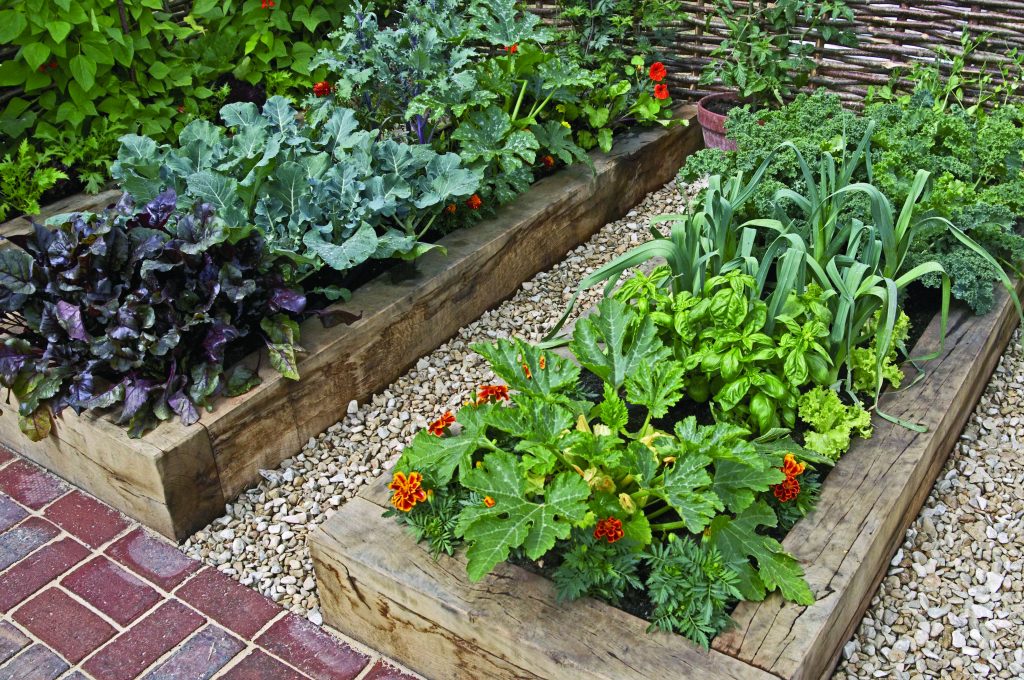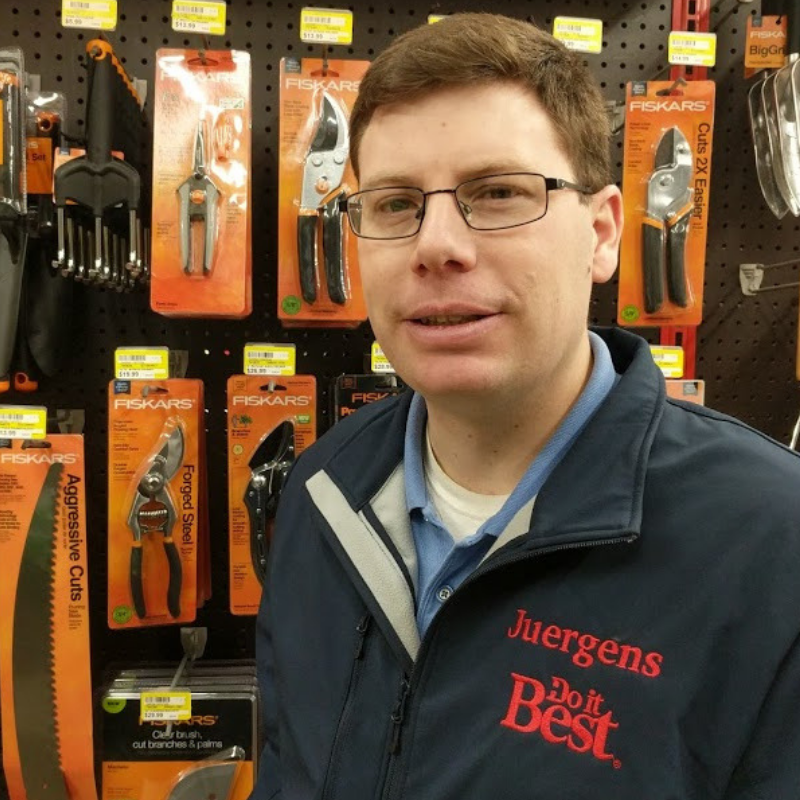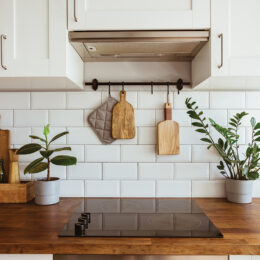
By Brandon Juergens
Eating fresh fruits and vegetables is always a good idea, but it can be expensive. That’s why so many people are now growing their own produce. It’s not only budget friendly, but we also feel good knowing where our food comes from, and how it was grown — most notably (and hopefully) without pesticides. Kitchen gardens are one of the fastest growing trends for DIYers, especially for those short on space. With spring around the corner, now’s a great time to get your hands dirty.
What’s in a Name?: A traditional kitchen garden, also known as a “potager” (in French, “jardin potager”) or in Scotland a “kailyaird,” is a space designated for growing things you’ll use every day in the kitchen. It contains just the fruits, vegetables, and herbs we know we’ll eat most often, separate from the ornamental flowers, plants, and the rest of the yard. A kitchen garden can stand alone as a humble vegetable plot, or it can serve as a structured, central feature of an all-season landscape.
Bringing Freshness Back:The original idea behind kitchen gardens was that they would be tended to year-round for a continuous supply of just the right amount of healthy foods we could prepare and eat fresh. But many of us grow more than we need, which means we must preserve the extra produce or give it away. As a result, the popularity of “use it now” kitchen gardens waned. But as the self-sufficiency movement picks back up, these types of gardens are becoming all the rage once again.
Those in the Know:If you’re a gardening novice or haven’t done it lately, there are great resources to help you get started. Your local county extension office has lots of knowledgeable people (some are master gardeners) who can offer advice on building your own garden and advise on the best times to plant certain fruits and veggies in your part of the state. Purdue Extension offices are great places to seek help and advice. They’ll give detailed instructions for building kitchen gardens from scratch and field questions from newbies or more experienced green thumbs. The Consumer Horticulture Program at the Purdue University website — www.purdue.edu/hla/sites/yardandgarden/about-purdue-consumer-horticulture — is loaded with information and opportunities to learn more.
Start Planning: Now take all this knowledge and enthusiasm to your local hardware store or home center. You’ll find all the necessary materials to begin building raised beds or prepping the ground for an open plot. Many stores hold workshops in the spring that highlight local master gardeners and landscaping pros who know how to plan an efficient growing schedule and build a garden that fits your yard and lifestyle.
Get Going: There’s work ahead of you, so make sure you’re ready with the right materials and tools. If you’re building raised beds, take measurements and pick up some naturally rot-resistant wood like red cedar, black locust, or redwood. Avoid woods preserved with toxins, such as creosote-soaked railroad ties. Recycled plastic or composite wood planks are options as well. A drill, level, mallet, and screws are necessities. Raised beds or not, a sod cutter and hoe may be in order. Good soil, organic compost, and a balanced fertilizer create a good foundation. Pick up a trowel, pruners, a shovel, rake, hose, kneeling pads, and gloves. Cages, hoops, stakes, and ties will keep your bounty orderly and safe. Hardscaping materials like brick pavers and natural stones create a lovely walking path to, or within, the garden. Lastly, choose from a wide array of seeds or seedlings to get your garden up and running. Just be sure to stagger the plantings each month to continue growing all summer long.
Visit your local Do it Best store or doitbest.com for thousands of the best home improvement products, including all the gardening essentials for creating a successful kitchen garden.

BRANDON JUERGENS’ family owns Juergens Do it Best Center® in Huntington. The Juergenses are member-owners of Do it Best Corp., a Fort Wayne-based cooperative of thousands of hardware stores, home centers and lumberyards throughout the U.S. and around the world.
(This article is for informational purposes only. Indiana Connection and Do it Best Corp. assume no liability for the accuracy or completeness of the information contained herein, or for injuries, property damage, or the outcome of any project.)



